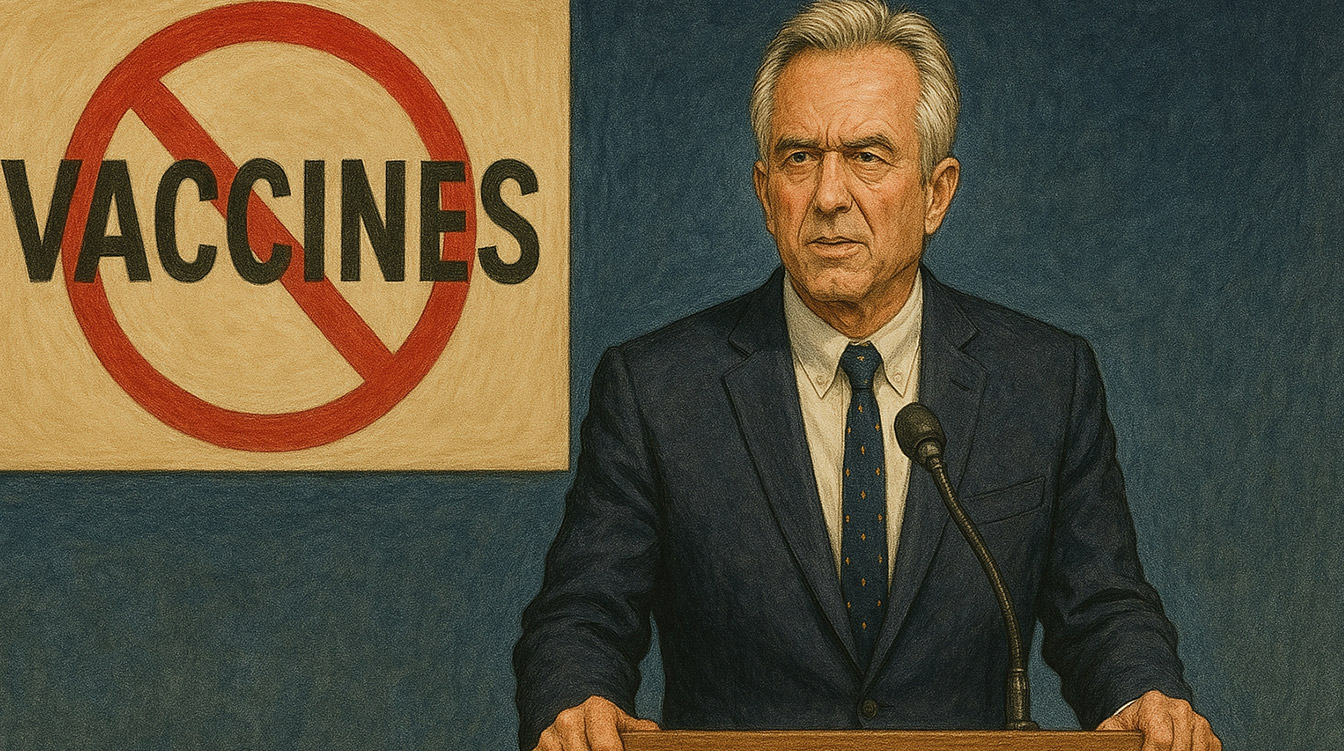
Vaccine Scepticism and Pharma Trust in 2025: Why Social Listening Transforms Risk Management
The Immediate Market Impact of Political Change
When FDA vaccine chief Dr Peter Marks resigned in March, the pharmaceutical sector felt it immediately. Shares in Novavax dropped over 8% in a day. BioNTech fell by 4%. The markets, as ever, were quick to respond. But what's unfolding goes deeper than short-term volatility.
Robert F. Kennedy Jr.—a long-time vaccine sceptic—has taken the helm as U.S. Health and Human Services Secretary under the new Trump administration. His appointment doesn't just symbolise a shift. It's reshaping public perception and decision-making across the pharmaceutical industry at a fundamental level.
We're already witnessing significant effects on:
- Pharmaceutical brand reputation and public trust
- Investor confidence and market stability
- Scientific authority in healthcare decision-making
- Global health policy direction and implementation
Having worked with pharmaceutical brands through numerous turbulent periods, this one stands apart. It represents a powerful real-time case study in how political rhetoric and public sentiment collide—and why understanding both has become absolutely business-critical.
The Deepening Crisis of Confidence in Vaccines and Institutions
The pharmaceutical industry has historically faced trust challenges. Vaccines, specifically, occupy that complex intersection between scientific advancement, personal autonomy, and public health responsibility. They're simultaneously deeply personal and inherently political—when influential figures cast doubt, the consequences can be immediate and far-reaching.
This exact scenario is now unfolding across the United States. Kennedy's well-documented views on vaccines are already demonstrating measurable impact:
- Cantor Fitzgerald analysts have publicly called for his removal, emphasising the necessity for evidence-led leadership.
- Reuters reports a significant chilling effect on pharmaceutical mergers and acquisitions, with major deals stalling amidst policy uncertainty.
For pharmaceutical CMOs and communication leaders, this isn't merely a moment for reactive press releases or damage control. It demands sophisticated real-time intelligence—comprehensively understanding what conversations are happening, why certain narratives resonate, and what might develop next.
Social Intelligence as Essential Risk Management
In today's environment where sentiment can transform overnight, strategic listening has evolved from nice-to-have to essential risk management. This isn't casual monitoring but structured, always-on analysis that enables organisations to track:
- Which concerns and narratives are gaining momentum across platforms
- Which voices are influencing different community segments
- Where misinformation originates and how it propagates
- Which emerging narratives are likely to break into mainstream discourse
Through AI-powered tools combined with human expertise, our systems monitor billions of social conversations to identify early warning signals—before they reach headline status. This proactive approach allows organisations to address potential backlash, correct misinformation early, and respond with contextually appropriate messaging.
Research Insight: A European Journal of Public Health study found that vaccine scepticism online frequently stems not from anti-science attitudes, but from fundamental distrust of institutions and healthcare professionals. This critical distinction suggests the need to pivot from traditional top-down education campaigns toward approaches that centre trusted voices within specific communities.
Four Strategic Ways Pharmaceutical Companies Can Act Now
When properly leveraged, social intelligence shapes effective strategy. Here are four practical ways pharmaceutical brands are using real-time listening to inform smarter decisions:
1. Anticipate Crises Before They Escalate
Identifying sentiment spikes in response to speeches, headlines, or influential social posts enables brands to respond before full-blown PR issues develop. Understanding what's emerging allows for strategic adaptation of message, tone, and messenger accordingly.
2. Map Resistant Community Segments
Not all scepticism manifests identically. Different communities resist pharmaceutical messaging due to varied historical experiences, cultural contexts, or exposure to misinformation. Understanding which specific groups feel alienated—and crucially, why—allows brands to engage more meaningfully, beginning with genuine empathy rather than simply presenting evidence.
3. Track Influence at the Edges of Discourse
The most significant narratives often originate in peripheral spaces—Reddit threads, specialised forums, and micro-influencer accounts. Our clients regularly utilise social listening to identify issues emerging in these spaces, providing valuable lead time to develop responses before conversations achieve viral status.
4. Identify Momentum and Strategic Opportunities
Not all emerging trends represent threats. In many cases, positive sentiment shifts create openings for strategic partnerships, targeted campaigns, or narrative reframing. Comprehensive listening helps organisations recognise when—and precisely where—to engage proactively.
Why the U.S. Regulatory Climate Matters Globally
The American pharmaceutical landscape doesn't exist in isolation. Developments there directly influence:
- Global pricing strategies and market access
- International investor sentiment and funding flows
- Regulatory approaches across multiple jurisdictions
- Global supply chain planning and risk assessment
More broadly, the political and social climate surrounding healthcare in the United States often foreshadows developments elsewhere. The erosion of institutional trust, increasing politicisation of scientific discourse, and accelerating spread of misinformation transcend national boundaries.
Strategic Listening: From Optional to Essential
The pharmaceutical organisations that will navigate this challenging landscape successfully won't simply be those with perfectly crafted talking points. They'll be the ones who listen systematically, respond intelligently, and adapt strategies in real time.
Public sentiment isn't background noise to be filtered out—it's become a critical strategic asset.
In today's volatile environment, it represents the most effective early-warning system available.
Contact us: Get in touch to explore how our social intelligence tools can help your team effectively navigate what's next.
Patrick Charlton Published on April 11, 2025 9:20 am

